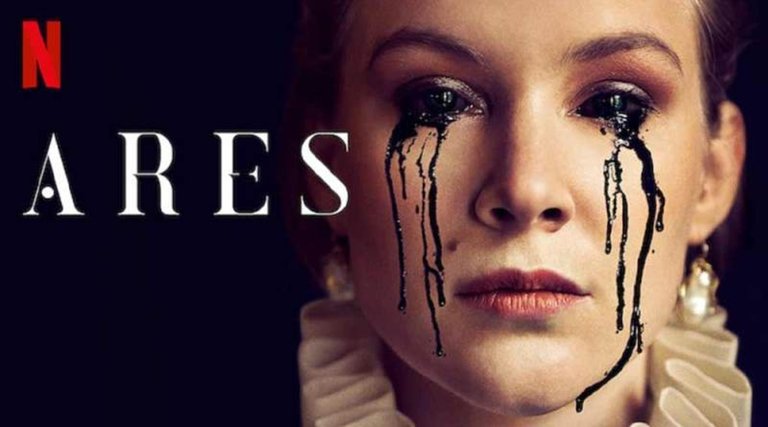[Spoilers Ahead] Ares: An In-Depth Analysis of the Plot, the Characterisation and the Themes

Note: If you want to watch the series and haven’t yet, I recommend you skip this analysis because I will completely spoil everything for you.
The first theme is one of egoist ambition. In the face of a ruthless world, where good medicine and treatments are kept from the poor due to the eternal quest for profit, the main character, Rosa, seeks an opportunity to get what she wants. Maybe she doesn’t know it yet, but once, while she’s in an angsty and rebellious mood, she sees that her best friend Jacob has rich associates, and a light bulb turns on above her head as she realises she could perhaps give proper treatment to her ill mother, or at least get some of the sweet opportunities that come from being on the top. This in itself is a surprising turn of events because most traditional main characters would baulk at the idea of stepping over innocent people to reach their goals. And while I don’t agree with the notion that having more money than others means you’re abusing them, this is implied at the beginning, and similar perspectives are shown throughout the production.
Knowing the name of the series, having read some descriptions and seeing the cover, it’s clear that these people are in a cult. Rosa (the MC) is not aware of it, and if she were, it’s not clear whether she would want to join. However, Jacob (her best friend) is reluctant and telling her not to. In a sense, this is playing with the viewer because we think Jacob knows that the cult is bad, and we don’t ask what relationship he has with them. We’re attached to Rosa’s perception, and even there, seeing the multiple warnings, she’s stubbornly moving forward with what she perceives to be the right choice (not hesitating in the face of opportunity).
This all ties into the rest of the series. The same archetypes are played over and over. Rosa wants to walk forward no matter the cost, Jacob is a protector who pushes people toward loss due to his values, the cultists are people who walk over others to get to their goals, they’re rich and powerful, yet unliked by the outside world.
The central theme is introduced as soon as Rosa makes her first big choice: guilt. The story runs on points where sacrifices have to be made, and Rosa and others are very willing to do what they think is right at the cost of their values and humanity. This is the one thing I criticise philosophically. “Humanity” as something we owe to is an illusion. We owe nothing to anyone, even to ourselves, because that is the nature of reality: relative, absurd, meaningless. Yet, the fuel for this series is continuous moral judgements on people and their decisions. In a sense, I think that Ares shows these topics much better than any other TV show I’ve watched up to now. The excellent quality, and the fact that they depersonalise this morality and give it the shape of guilt (something that does exist as it’s a subjective phenomenon) makes me forgive this issue in one fell swoop.
I loved Rosa’s character for most of the series. She was assertive and walked forward with her head high. I felt deeply identified with her in her struggle to cut herself away from humanity’s demands to work toward her true goals, which were her self-realisation as an independent agent in reality, and her pursuit of effective tools to solve her problems (beyond the traditional fairy tale that “things just come to you if you keep doing the right thing day after day”). However, in the end, she loses that perspective. When the theme of guilt is strengthened, she becomes awkwardly conscious of her role as a social pawn. She suddenly decides to throw everything away, including potentially her life, in order to… do the right thing? It’s unclear why she does what she does at the end.
Another thing I would disagree with is all of this getting into a stranger’s black van deep in the night with a bunch of other “recruits”. More likely than not, you’ll wake up in an organ farm or an underground brothel. However, these are choices that I accept as literary devices, and through them, the message is transported clearly.
The only thing that I disliked was very mild. It was done very well, regardless of whether the idea itself was not as likeable. There’s a point in the show where we require an explanation of what lies below Ares. Images start popping up about slaves from the colonial era and the faces of those guilty of this atrocity. These scenes explain little and do two things:
- a simple display of moral judgement against the perpetrators,
- and a call to understand that today’s Netherlands is built on the blood and sweat of slaves.
We can imagine Ares as Ayn Rand’s creation: an organisation that professes a morality of self-service. And below this organisation, below Ares, below the fulfilment of one’s desires without trying to play a constructive role in society, lies evil, and it feeds on what should be in humanity: guilt. Rosa’s mother explains this on her visit to the hospital. “It feeds from you” (in the show, literally). While I loved the series in all, the whole theme, and this scene in particular, are a reductio ad absurdum of a strawman (or what is called a strawman fallacy). In other words, it’s an attack on the basic egoist school of thought through the comparison to literal slavers and colonialists from the 1500s-1800s, who could be said to be “literally the worst people ever”. So, while the series was a fantastic watch, the theme is a bad argument in an old debate.